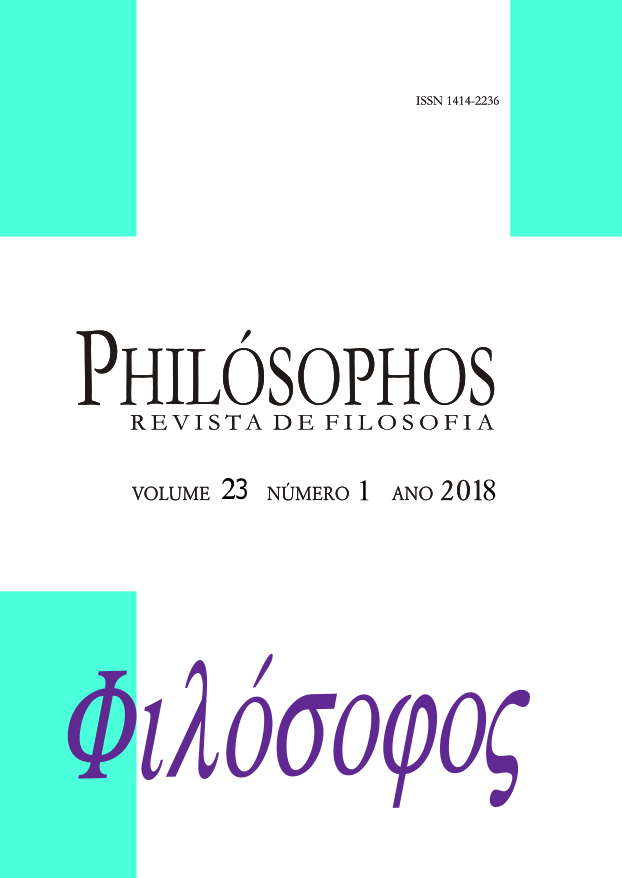Sentiments as the foundation if reciprocal demands: a naturalized investigation into morals according to hume and tugendhat
DOI:
https://doi.org/10.5216/phi.v23i1.44434Keywords:
Tugendhat, Hume, Sentimentalism, NaturalismAbstract
The initial problem to be faced by naturalist investigations into morals is how to conceptualize it in a way that explains what ordinarily occurs in nature. In this sense, a vertical explication where actions are catalogued according to abstract theoretical constructions says little about the world. Therefore, the investigation presented in this article will be guided by an inverse methodology. It will refer to analysis of ordinary social behaviours which I will advance through the understanding of morality according to its functionality. The concept of morals presented by Tugendhat, for whom morality is a combination of reciprocal demands expressed through sentences of duty based on sentiments, is of major importance to the way in which I will address the question. Moreover, I will carry out an accurate study of humean moral thought, with the objective of determining to what extent sentiment and reason influence the motivation to approve or censor socially relevant actions. Once we have investigated the natural aspects of the moral phenomenon, I will conclude the article presenting a possible compatibility between theoretical marks of humean empiricism and Darwin’s evolutionism.
Downloads
Downloads
Published
How to Cite
Issue
Section
License
Authors who publish in this journal agree to the following terms:
- Authors retain copyright and grant the journal right of first publication, with the work simultaneously licensed under a Creative Commons Attribution License that allows others to share the work with an acknowledgement of the work's authorship and initial publication in this journal.
- Authors are authorized to enter into separate, additional contractual arrangements for the non-exclusive distribution of the journal's published version of the work (e.g., publishing in an institutional repository or as a book chapter), with an acknowledgement of its authorship and initial publication in this journal.















